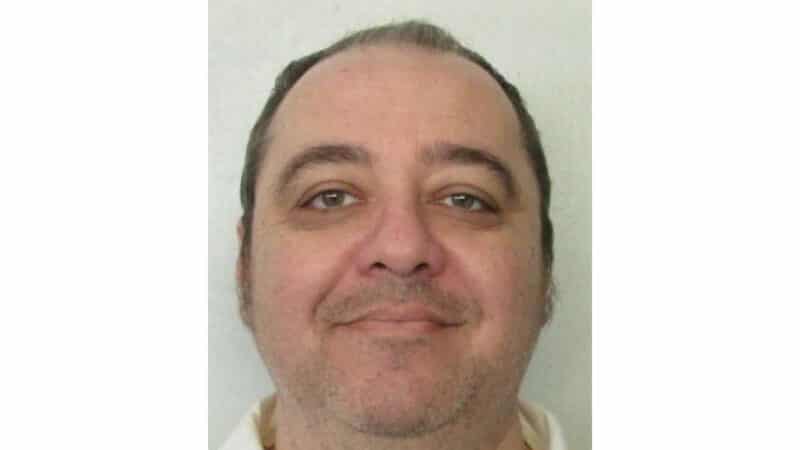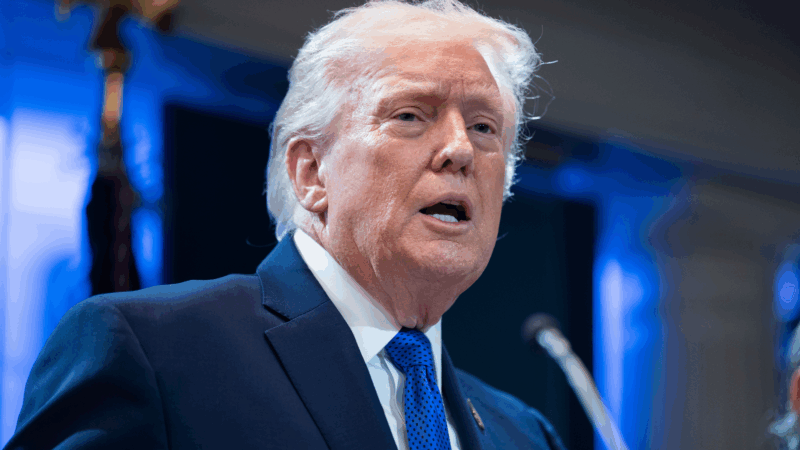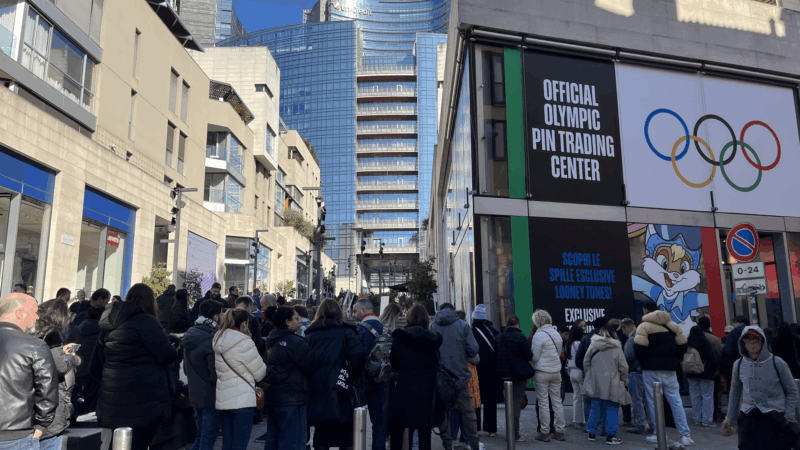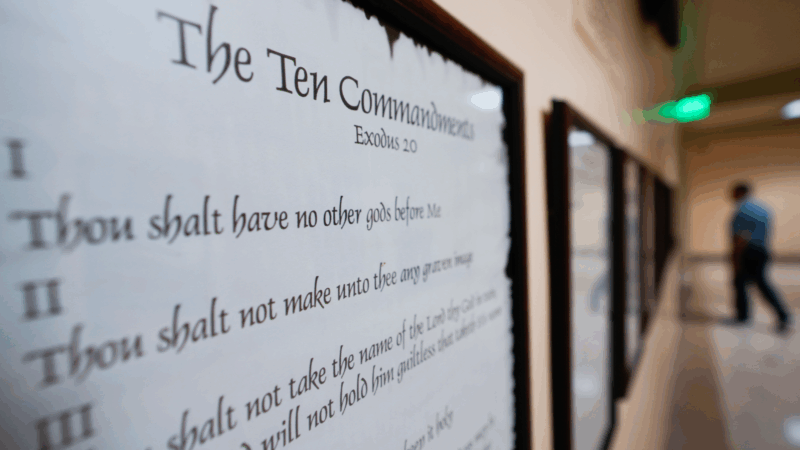Spiritual adviser at first nitrogen gas execution asks Alabama for safeguards to protect witnesses
MONTGOMERY, Ala. (AP) — The spiritual adviser for an Alabama prisoner set to be the first person executed with nitrogen gas has asked the state prison system to provide additional precautions to ensure the safety of bystanders and witnesses at the execution.
The Rev. Jeff Hood, who will stand near Kenneth Smith during his execution, sent a letter Monday to the Alabama prison system requesting safeguards in case of a nitrogen leak in the execution chamber. The requested safeguards include the presence of oxygen monitors in the death chamber, the availability of supplemental oxygen sources, the presence of ambulances and training on available exit routes.
Smith is scheduled to be put to death on Jan. 25 by nitrogen hypoxia, an execution method authorized in three states but that has never been used to put a person to death. The state plans to place a face mask over Smith’s nose and mouth to replace breathable air with pure nitrogen, causing him to die from lack of oxygen.
“Nitrogen hypoxia is a novel execution method. Use of this deadly gas, unlike lethal injection, poses a high risk of exposure to all bystanders. As such, its use requires special safeguards to protect all bystanders and observers, including Dr. Hood,” the letter sent by Hood’s attorney stated.
The Alabama Department of Corrections did not immediately respond to an email Wednesday seeking comment about the letter.
Hood and a correctional officer will be in the execution chamber when the warden activates the nitrogen gas system from an adjoining room. Witnesses, including attorneys, media witnesses and witnesses for the victim, will be watching the execution through windows from other adjoining rooms.
Nitrogen gas makes up 78% of the air inhaled by humans and is harmless when inhaled with proper levels of oxygen. But nitrogen gas can become quickly deadly when it displaces adequate levels of oxygen. The state has argued that the lack of oxygen will cause Smith to lose consciousness within seconds and die within minutes. However, Smith’s attorneys and critics of the proposed new execution method have likened it to human experimentation.
The state required Hood to sign a form acknowledging the risks and agreeing to stay 3 feet (91 centimeters) away from Smith’s gas mask. The form stated that in the “highly unlikely event that the hose supplying breathing gas to the mask were to detach, an area of free-flowing nitrogen gas could result, creating a small area of risk (approximately two feet) from the outflow.”
The nitrogen gas would be administered for at least 15 minutes or “five minutes following a flatline indication on the EKG, whichever is longer,” according to the state protocol.
A federal appeals court on Friday will hear arguments in Smith’s request to block the execution. Smith’s attorneys argued that there are many unknowns with a nitrogen execution and that the state’s proposed protocol violates the ban on cruel and unusual punishment. They also argued that the state violated his due process rights by scheduling the execution when he has pending appeals.
The state in a Wednesday court filing argued that the execution should be allowed to proceed.
“Smith admits that breathing 100% nitrogen gas would result in … death. And the experts agree that nitrogen hypoxia is painless because it causes unconsciousness in seconds,” the state argued.
Smith, now 58, was one of two men convicted of the murder-for-hire of a preacher’s wife that rocked Alabama in 1988. Prosecutors said Smith and the other man were each paid $1,000 to kill Elizabeth Sennett on behalf of her husband, who was deeply in debt and wanted to collect on insurance.
Smith was set to be killed by lethal injection in 2022, but the Alabama Department of Corrections had to call off the execution at the last minute when authorities couldn’t connect two intravenous lines.
Trump to raise global tariffs to 15%
President Trump previously said he would implement 10% global tariffs after the U.S. Supreme Court struck down his tariff policies.
Pin trading has taken over the Olympics. Here’s what it’s like in Milan
Pin trading has become a hallmark of the Olympics in recent decades — and not just for athletes. An official trading center in Milan was a hotspot for longtime collectors and curious newcomers alike.
US military airlifts small reactor as Trump pushes to quickly deploy nuclear power
The Pentagon and the Energy Department have airlifted a small nuclear reactor from California to Utah, demonstrating what they say is potential for the U.S. to quickly deploy nuclear power for military and civilian use.
How Nazgul the wolfdog made his run for Winter Olympic glory in Italy
Nazgul isn't talking, but his owners come clean about how he got loose, got famous, and how they feel now
Court clears way for Louisiana law requiring Ten Commandments in classrooms to take effect
The 5th U.S. Circuit Court of Appeals has cleared the way for a Louisiana law requiring displays of the Ten Commandments in public classrooms to take effect.
From cubicles to kitchens: How empty offices are becoming homes
Many U.S. cities have too many office buildings and not enough homes. Developers are now converting some old offices into apartments and condos, but it's going slowly.






